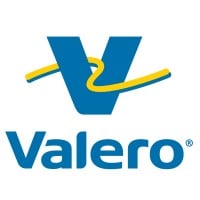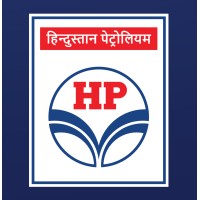Company Cyber Security Posture
NANA
NA Company Details
NA
NA
NA
NA
NA
NA
Scan still pending
NA
NA
Between 200 and 800
This score is AI-generated and less favored by cyber insurers, who prefer the TPRM score.
 NA Global Score
NA Global Score.png)

Company Scoring based on AI Models
| Model Name | Date | Description | Current Score Difference | Score |
|---|---|---|---|---|
| AVERAGE-Industry | 03-12-2025 | This score represents the average cybersecurity rating of companies already scanned within the same industry. It provides a benchmark to compare an individual company's security posture against its industry peers. | N/A | Between 200 and 800 |
Company Cyber Security News & History
| Entity | Type | Severity | Impact | Seen | Url ID | Details | View |
|---|
Company Subsidiaries

NA
Access Data Using Our API

Get company history
.png)
NA Cyber Security News
US judge orders Argentina to sell 51% stake in oil firm YPF
None
Argentina Cybersecurity Salaries: What Can You Expect to Earn?
Discover expected cybersecurity salaries in Argentina. Learn about entry, mid, and senior-level salaries and factors impacting earnings.
Australian airline Qantas says hit by 'significant' cyberattack
None
Bankruptcy Judge Advances $14 Billion YPF, Repsol Pollution Lawsuit to Trial
Judge Christopher Sontchi of the U.S. Bankruptcy Court in Wilmington, Del., declined to grant pretrial judgment in litigation alleging ...
YPF, Repsol Settle Passaic River Bankruptcy Lawsuit for $575 Million
Argentine energy company YPF SA has agreed to pay half of the settlement, according to a securities filing by YPF on Friday. Spain's Repsol SA, ...
YPF’s Passaic River Cleanup Dispute With Maxus Resumes in Bankruptcy Court
Argentine energy company YPF SA and a trust for its former subsidiary Maxus Energy Corp. on Monday resumed their longstanding dispute over who ...
White & Case Fends Off Effort to Oust It From YPF Pollution Litigation
YPF has denied the allegations. The failure to oust White & Case “does not affect the strengths of the YPF Defendants' defenses on the merits of ...

NA Similar Companies

Gas Natural Fenosa
Gas Natural Fenosa is a leading multi-national in the gas and power sectors. It operates in 23 countries and has more than 20 million customers around the world. Following its recent acquisition of UNIÓN FENOSA, Spain's third biggest power company, Gas Natural Fenosa has achieved its objective of

Desco Incorporated
We are an energy service company which caters to the needs of geothermal, oil and gas projects. Our company provides products and services which introduce value-added propositions and integrated solutions to our clients' requirements. DESCO is a licensee of Cameron to manufacture WKM Geothermal G

Oil and Gas Systems
Oil and Gas System Company offers combined solutions for project equipping, new product development, project designing and services for enterprises of oil and gas, power, transport-building and other industries. Oil and Gas System Company is the exclusive supplier of Russia’s leading machine-buil

Valero
Valero is an international manufacturer and marketer of transportation fuels and petrochemical products. We are a Fortune 500 company based in San Antonio, Texas, fueled by nearly 10,000 employees and 15 petroleum refineries with a combined throughput capacity of approximately 3.2 million barrels pe

Hindustan Petroleum Corporation Limited
Hindustan Petroleum Corporation Limited (HPCL) is a Maharatna Central Public Sector Enterprise (CPSE) and a S&P Global Platts Top 250 Global Energy Company. HPCL has a strong presence in downstream hydrocarbon sector of the country with a sizable share in petroleum product marketing and also has bus

Ecopetrol
Ecopetrol (NYSE: EC) es la compañía más grande en Colombia y uno de los principales grupos de energía de Latinoamérica. Cuenta con más de 18.000 empleados y es responsable del 60% de la producción de hidrocarburos en Colombia. Es propietaria de las dos refinerías del Colombia y de la gran pa

Frequently Asked Questions
Explore insights on cybersecurity incidents, risk posture, and Rankiteo's assessments.
NA CyberSecurity History Information
How many cyber incidents has NA faced?
Total Incidents: According to Rankiteo, NA has faced 0 incidents in the past.
What types of cybersecurity incidents have occurred at NA?
Incident Types: The types of cybersecurity incidents that have occurred include .
Additional Questions
What Do We Measure?
















Every week, Rankiteo analyzes billions of signals to give organizations a sharper, faster view of emerging risks. With deeper, more actionable intelligence at their fingertips, security teams can outpace threat actors, respond instantly to Zero-Day attacks, and dramatically shrink their risk exposure window.
These are some of the factors we use to calculate the overall score:
Identify exposed access points, detect misconfigured SSL certificates, and uncover vulnerabilities across the network infrastructure.
Gain visibility into the software components used within an organization to detect vulnerabilities, manage risk, and ensure supply chain security.
Monitor and manage all IT assets and their configurations to ensure accurate, real-time visibility across the company's technology environment.
Leverage real-time insights on active threats, malware campaigns, and emerging vulnerabilities to proactively defend against evolving cyberattacks.




